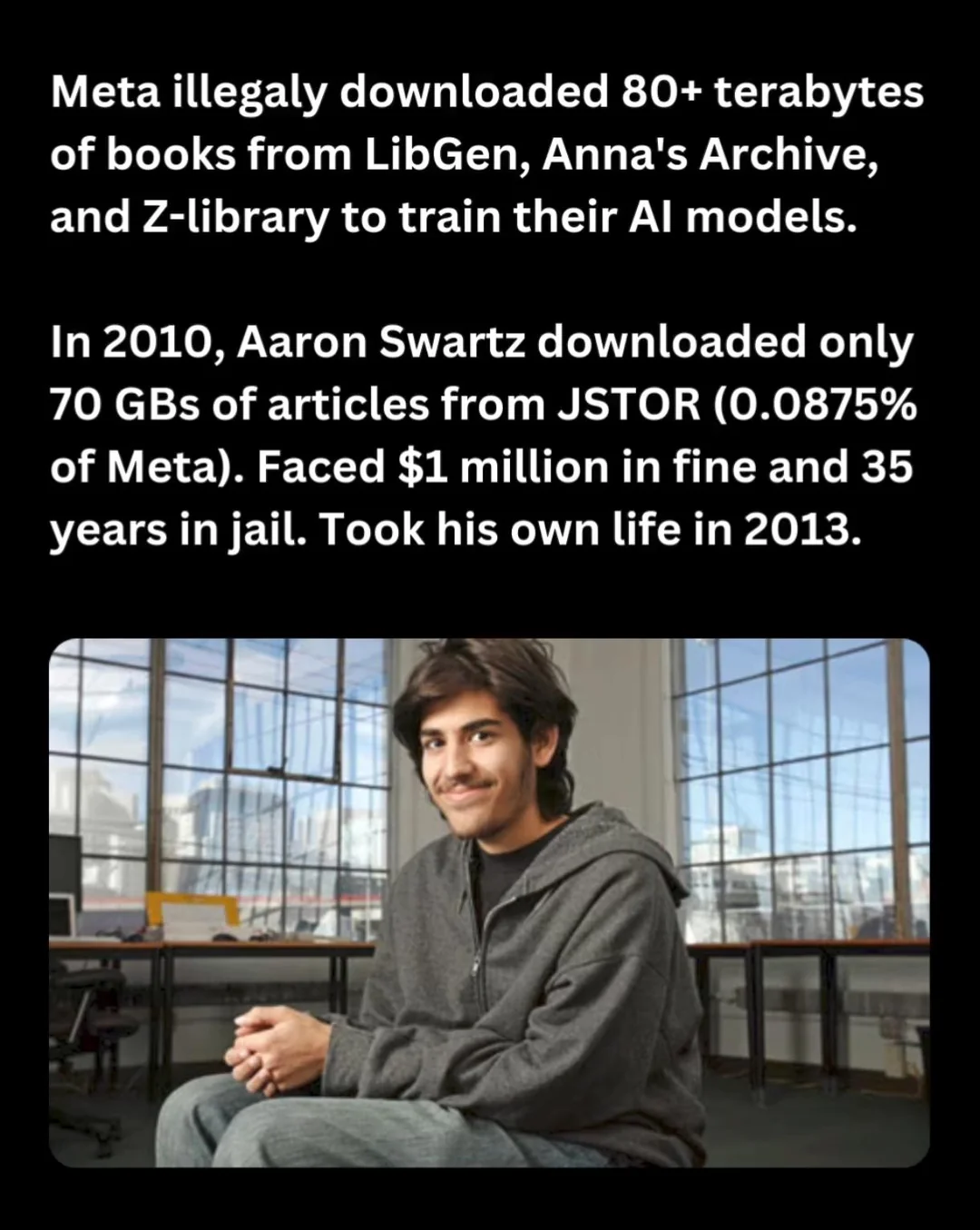Regardless of whether they physically hung him or not, Aaron Swartz was murdered by the state.
His crime was downloading information that he legally had an entitlement to access. He never hacked a computer system or broke a lock. He never even trespassed. JSTOR, the supposedly damaged party was happy to take a settlement and did so.
His actual crime was that he was a prominent and talented advocate against the government and surveillance industrial complex's hostile takeover of the internet to be used entirely as method of propaganda and control.
After his death when there were some minor (ass covering) inquiries into the prosecution, congressional staffers told that the reason the FBI and intelligence connected people at MIT & in government went after him so extremely was cited as being due to the fact that he'd written the Guerilla Open Access Manifesto many years earlier - a short arguement in favour of open access that said that, if required, direct action may require breaking the law, specifically copyright law. This was used to frame him as a sort of information terrorist who might need to be dealt with before the open access movement grew beyond a small activist tech circle.
It was, of course, an absurd characterisation.
But he was a threat to an oppressive intelligence state that was trying to tighten it's stranglehold on the internet while feeling increasingly paranoid following the exposures of war crimes by Wikileaks and other disclosures in previous years. He was an exceptionally talented coder, MIT research fellow, and believer in progressive American democratic activism. He'd built useful tools like the code for RSS, a successful social media company (Reddit, and look at what they've done with that since), and most importantly tools and organisations like Creative Commons for public good and Deaddrop for secure communication channels for journalists and whistleblowers. He was dangerous to the state precisely because he had done everything right, because they couldn't publicly paint him as some cyber terrorist or technoextremist. He represented the things the state claimed to be for, claimed to encourage and value, rather than the corrupt, criminal, and oppressive reality.
After his death, numerous people in media and even government asked why the state refused to drop more than 10 felony charges against him. Or why both the government, MIT, and FBI kept refusing to release anything but a handful of mostly redacted documents about the investigation and prosecution.
It seems that this need to baselessly frame Aaron as some sort of radical extremist meant that as the case began to fall apart, they got increasingly desperate to simply forcibly take him 'off the board' one way or another. Backing down on anything less than jail time and a ruinous admission of felony guilt wouldn't just be seen as an embarrassment, but counter suits and follow ups threatened to expose the fact that much of the investigation and prosecution hadn't just been overreach, but also deeply corrupt and seemingly illegal.
In congressional hearings it was stated that
prosecutor Stephen Heymann "instructed the Secret Service to seize and hold evidence without a warrant... lied to the judge about that fact in written briefs... [and] withheld exculpatory evidence... for over a year
Naturally the hearings and enquiries went nowhere, as designed, despite numerous bi-partisan legislators' concerns over government and prosecutorial actions and a growing movement of civil rights and open access groups campaigns.
Bills that would at least remove simply breaking Terms of Service from being (absurdly) and offence under the computer crimes and wire fraud laws looked promising, but stalled and were snuffed out in the legislature by the white house and the influence of CIA-front tech firm / US defence contractor Oracle.
Members of the government and prosecution after Aaron's death public attacked and smeared his grieving family.
Reddit became the intelligence service controlled, bot-maintained, consent factory it is today. The open access movement was successfully beaten back. And both the surveillance state and it's corporate partners in increasingly corporatizing or criminalising the internet. The state doubled down on prosecuting, imprisoning, and torturing whistleblowers and publishers of information. And increasingly any large enough app or site that cannot be tightly controlled by the state is banned or prosecuted.

 but I've always wondered if the infamous RedditFindsTheBostonBomber disaster was an early experiment to test not just the idea of Reddit as an OSINT/surveillance analysis tool, but also as a test of its potential for information warfare in reaction to live events.
but I've always wondered if the infamous RedditFindsTheBostonBomber disaster was an early experiment to test not just the idea of Reddit as an OSINT/surveillance analysis tool, but also as a test of its potential for information warfare in reaction to live events.

